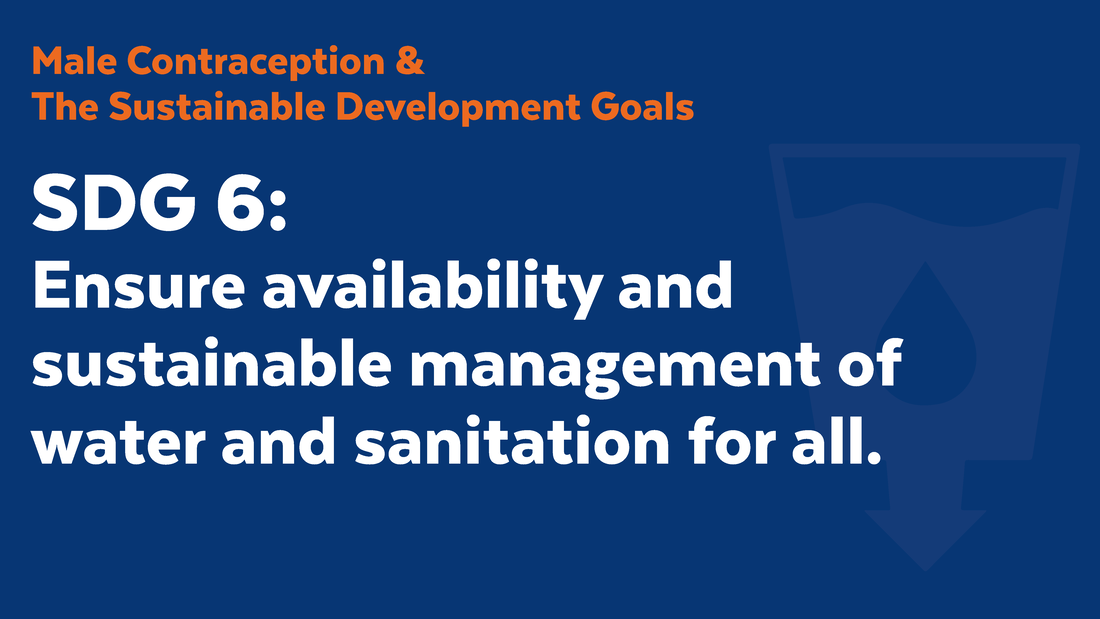|
Access to water and sanitation are human rights, yet billions live without them. Male contraception can reduce unintended pregnancies and population growth, easing water demand the world over and freeing this finite, life-sustaining resource for families everywhere. Around 1 in 3, or 2.2 billion people, are without reliable access to potable water, and even more, 4.2 billion people, live without adequate sanitation. Evidence suggests that things will get worse: if current population growth projections hold, the world will be home to over 9.6 billion people by 2050, straining already overdrawn water supplies and sanitation systems. With a growing demand for water in day-to-day life, health care, and food production, we must seek out all available avenues to promote sustainable water use. Like all challenges related to global consumption, our best option for easing strain on our limited water resources is by reducing the number of unintended pregnancies - of which there are over 85 million annually. Contraceptives have excellent potential to slow population growth by reducing unintended pregnancies. Male contraception, in particular, holds promise for addressing this issue. A single novel male contraceptive could access a substantial market with significant capability to reduce unintended pregnancies and give families across the world greater flexibility when planning for their futures. Reducing the number of unintended pregnancies can have cascading preservative effects on water and improved sanitation. Water resources are better preserved by less individual and commercial demand for consumption and irrigation needs. That is why it’s so important to invest in new male contraceptives. Sources/References:
- World Health Organization’s “1 in 3 people globally do not have access to safe drinking water” - "Microbial Quality of Drinking Water and Prevalence of Water-Related Diseases in Marigat Urban Centre, Kenya" by Mercy Mandere Osiemo, George Morara Ogendi, and Charles M’Erimba - Food and Agriculture Organization of the United Nations' “Water and the Rural Poor Interventions for improving livelihoods in sub-Saharan Africa” - “Modeling the impact of novel male contraceptive methods on reductions in unintended pregnancies in Nigeria, South Africa, and the United States” by Emily Dorman, Brian Perry, Chelsea B. Polis, Lisa Campo-Engelstein, Dominick Shattuck, Aaron Hamlin, Abigail Aiken James Trussell, and David Sokal Comments are closed.
|
Categories
All
Archives
June 2024
|
|
|
Donate to Male Contraceptive InitiativeYour generous donation makes a difference!
|
© Male Contraceptive Initiative. All rights reserved.


 RSS Feed
RSS Feed
